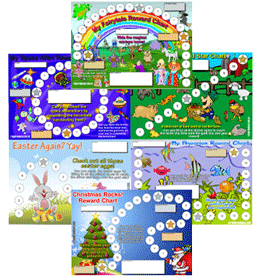My Mother often tells me “a perfect child is a boring child” and I kind of get where she’s coming from when she says this. I think it stems back from the days when children were meant to be seen but not heard. I thinks she’s saying that a child who has no child behavior problems, does everything without needing to be asked, always keeps their emotions in check, and needs little or no parental guidance, could easily become a part of the background.
But the truth is, in many ways it’s heartening to see the spirit in our children, their fire, their ability to reason and question, and yes, even their occasional outburst. All this can be considered “normal” or perhaps more accurately “usual” child behavior. It’s how our children learn to be assertive, to understand boundaries and consequences (and responsibility), to learn what child behavior is both acceptable and unacceptable, and to develop their sense of independence as they grow older.
The expectations regarding child behavior have changed dramatically over the last 50 years or so, to the point where having a child who blindly follows every command, speaks only when spoken to, and who displays little or no emotion, would be as alarming as the child who refuses all commands, has constant outbursts, shows no respect for others, and who ignores basic social etiquette. When talking about child behavior I guess what most parents want is a child who isn’t “perfect” (in the way of being emotionally stunted), who requires and responds to our guidance, has a voice and is connected to those around them, and a child who shows compassion and respect to others.
Understanding Child Behavior Expectations for Parents
- We can seek to have a general understanding of child behavior, and how it relates to the different age groups and developmental stages of our children.
- Understand the difference between what is “normal” and what we should be concerned about.
- When we need to guide or correct child behavior, and understand the tools and techniques that can help change inappropriate or unhealthy child behavior.
- To recognize when child behavior problems require professional help.
- Understand the importance of how we behave around our children and how it can influence child behavior.
- To understand the nuances in our kids, their personality, their level of development, the family structure and background, and how these factors relate to what would be considered “textbook” child behavior.
- To understand that we are the most influential people in our children’s lives, and that our children learn their behaviors not just from what we say, but from what we do.
Child behavior is complex. In fact child behavior experts devote years of study and research into this field, and still there are varying professional opinions and practices. To make it simple for us parents is to remember that we know our kids better than anyone. We need to have faith in our parenting, but equally, we need to recognize when the behavior of our children needs guiding, and also when we should seek out professional help.

